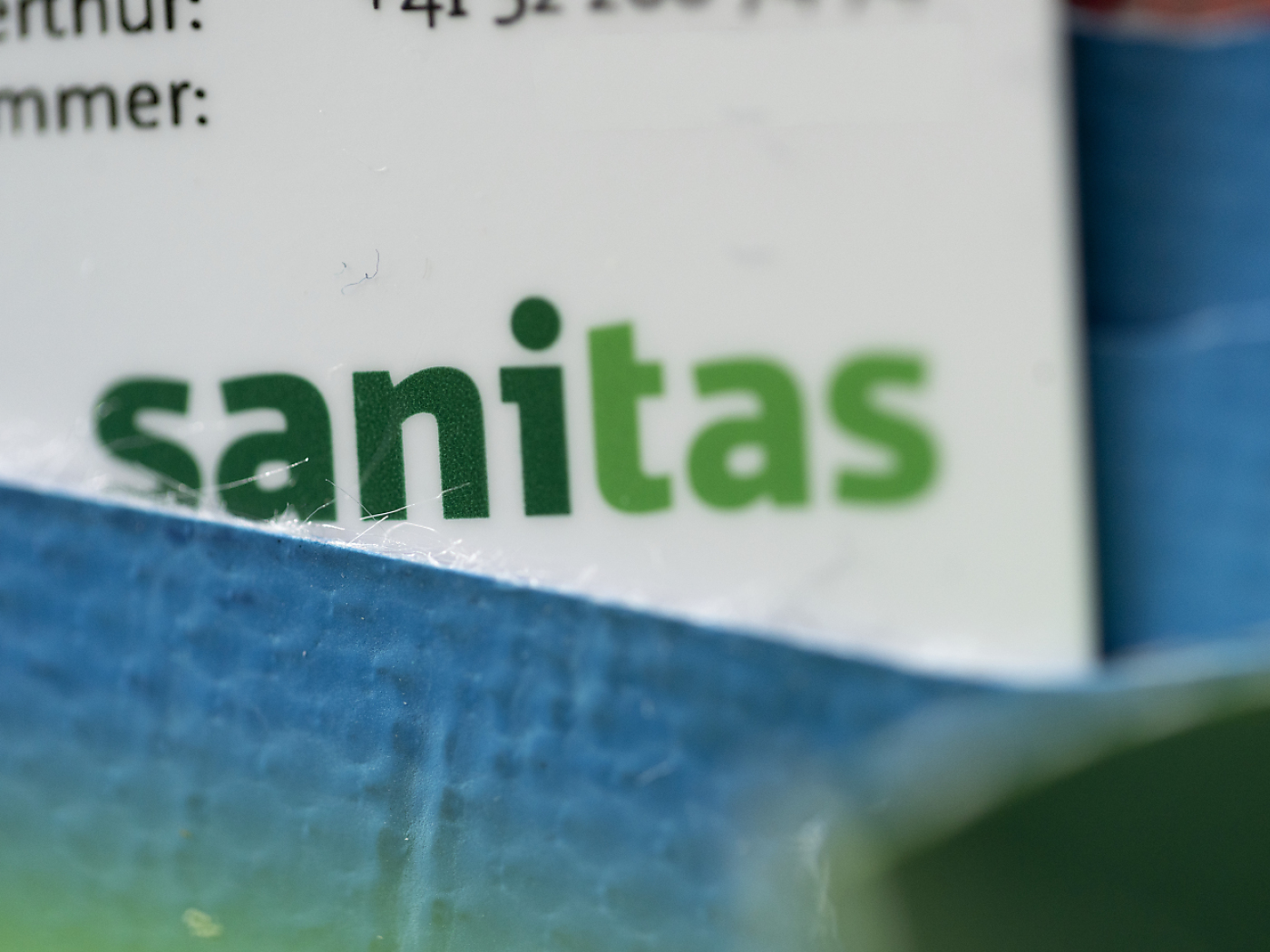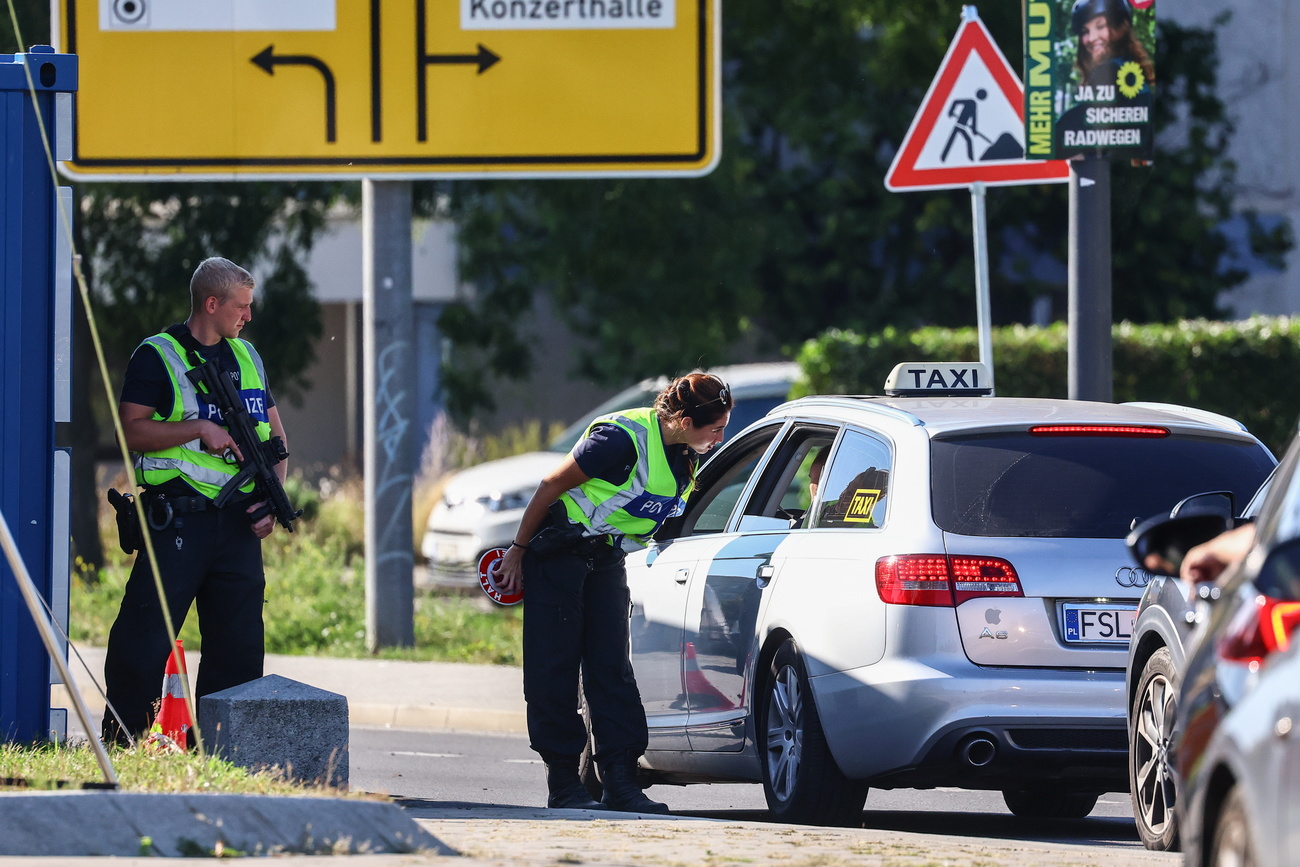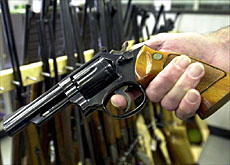Swiss shooters target Schengen accord

Shooting is more than just a sport to many Swiss, who believe a whole way of life would be under threat if the nation signs up to the Schengen accord.
Geared to improve cross-border security, the European Union agreement also lays down minimum requirements for acquiring and possessing firearms.
“The Swiss are well armed and enjoy great freedom,” wrote Machiavelli in 1532.
Many Swiss today see a causal connection between the two, with three million firearms in private hands.
And when they realised that a yes to Schengen would require changes to their liberal firearm laws, they came out with all guns blazing.
“We won’t let ourselves be disarmed by the EU!” says Willy Pfund, from the Committee for a Free Gun Law, which is calling for Schengen to be rejected, and also president of Pro Tell, a 7,000-strong pro-gun lobby.
“Not only is the security of Switzerland at stake but also the sovereignty of its gun laws,” Pfund added.
Pro Tell sees Schengen as the beginning of a slippery slope.
“If Switzerland enters into Schengen, sooner or later it will be forced to take on further tightening of European gun laws,” Pfund said.
The Swiss public is set to vote on whether to implement the accord, which covers other cross-border security issues and the removal of border controls with EU member states, on June 5. The upcoming ballot is also making emotions run high.
“This is an imported law that brings us nothing – it’s a farce!” Fritz Kilchenmann, president of the Zurich Shooting Association, told swissinfo.
“Respectable and law-abiding marksmen, hunters and gun collectors are being compared to criminals. You won’t prevent any crimes by taking weapons away from private owners and banning them,” said Kilchenmann.
Difference of opinion
Not all hunters, however, are calling for a no.
“Hunters can live with Schengen,” says Urs Weber, director of the 200,000-member Swiss Shooting Association.
“I had to register my mobile phone – I don’t see why one should refuse to register a weapon.”
JagdSchweiz, an umbrella organisation for Swiss hunters, has also distanced itself from Pro Tell’s stance.
It says the revision of the gun laws is only a small part of Schengen’s security efforts as a whole.
New laws
The main change that Schengen will have on gun laws, should the Swiss vote in its favour, is that the previous distinction between retail and private purchases would no longer apply.
Both types of acquisition would have to be reported to a cantonal office as well as weapons obtained by inheritance.
The firearms would also be classified as falling into one of three categories.
The first is banned weapons (automatic guns, disguised weapons and weapons of war such as grenade and rocket launchers), for which an exemption is required.
The second category is weapons requiring approval (revolvers, pistols and semi-automatics) and an acquisition certificate.
A reason must be given when applying for the acquisition certificate (although an interest in guns will do!) but the buyer does not have to prove a need.
Hunters, sports shooters and collectors are exempt from giving a reason for purchase.
The third category is weapons which have to be simply reported. These include rifles used for hunting and sports shooting.
In addition, a European firearms passport will be introduced, which will make life easier for hunters or sports shooters temporarily exporting guns to or passing through a Schengen state.
The requirements which apply to the purchase of weapons will also apply to ammunition.
No change
However, the guidelines have a limited area of application and give the Swiss legislature a degree of flexibility.
Swiss law will still have the final say on many issues.
This means that the Schengen accord will have no effect on the Swiss militia, young people’s shooting clubs, the right of soldiers to store their military rifles at home or the requirement that they return them when they leave the army.
The accord also does not require a central national weapons register and would not affect the carrying of firearms.
Finally, Schengen will not affect hunting and shooting in Switzerland – national laws regarding such things as hunting permits, the hunting season and shooting events will still stand.
High emotions
Switzerland’s recent history in gun-ownership has been chequered.
In 2001 a gunman entered the cantonal parliament in Zug, killing 14 people before turning the gun on himself. All his firearms, including an army-issue assault rifle, were legally acquired.
The killings shocked a country with a higher per capita rate of gun ownership than the United States but comparatively little gun crime.
The then justice minister, Ruth Metzler, said all guns should be centrally registered, sparking an outcry from the gun lobby and some politicians. The plans were later put on ice.
swissinfo, Thomas Stephens
Around three million firearms are in private hands in Switzerland.
320,000 assault rifles and other weapons are owned by former soldiers.
In 1998, official police statistics reported 66 cases in which guns were used in attempted or successful homicides.
Of 75 million cartridges shot in 2003, 31 were used in crimes involving firearms.
The Schengen accord lays down reporting requirements on the acquisition and ownership of firearms.
Several pro-gun lobbies are calling for Schengen to be rejected.

In compliance with the JTI standards
More: SWI swissinfo.ch certified by the Journalism Trust Initiative












You can find an overview of ongoing debates with our journalists here . Please join us!
If you want to start a conversation about a topic raised in this article or want to report factual errors, email us at english@swissinfo.ch.